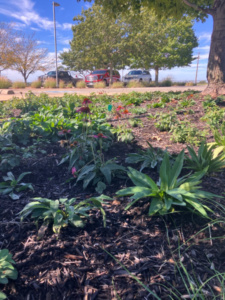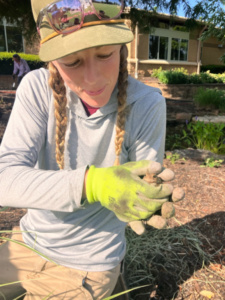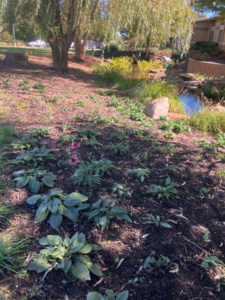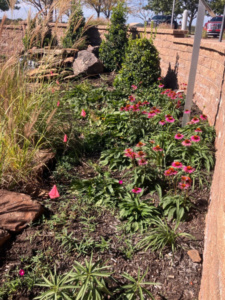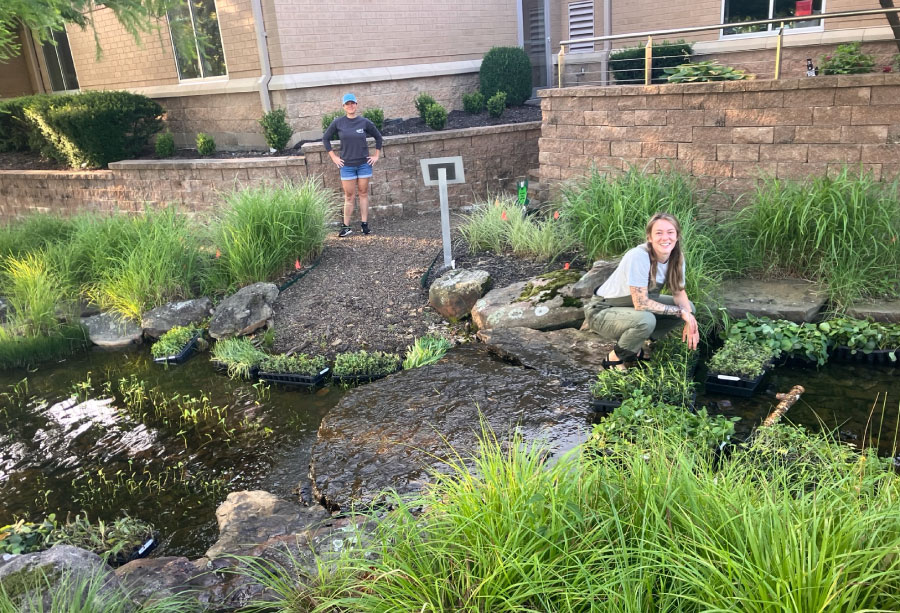
Native Plant Demonstration Garden at BWD
There’s been a lot of buzz around BWD’s water feature, lovingly named “Baby Beaver” by employees. The buzz is coming from an increase in pollinators from the addition of hundreds of native plants. Volunteers from the Benton County Master Gardeners, Master Naturalists, the Arkansas Conservation Corps, and BWD staff replaced existing non-native vegetation with native forbs, grasses, and shrubs as part of our ongoing effort to reduce water usage of the Administration Building grounds.
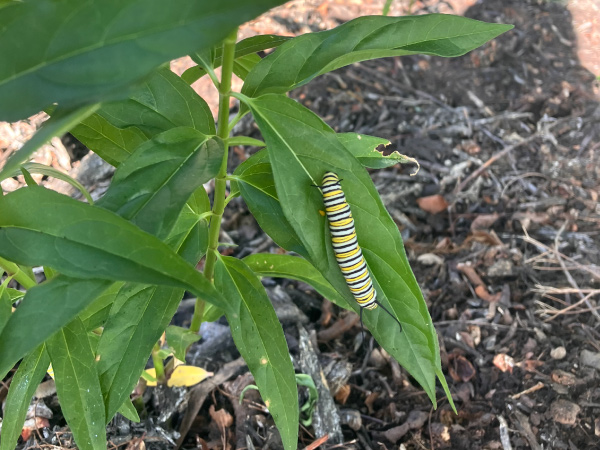 The adage, “If you build it, they will come,” proved to be true with this project. A horde of bees, dragonflies, butterflies, and other pollinators have visited our new plants, adding to the beauty and serenity of the outdoor classroom space at Beaver Water District. Some deposited many eggs, including the swallowtail butterfly, as well as the critically threatened species, the monarch butterfly. With so many caterpillars munching on the freshly planted forbs, a couple of staff members took the caterpillars home to their own patches of milkweed and golden alexander to give the newest plants a fighting chance at establishing before the winter months. As the plants mature, they will continue to provide a thriving habitat for wildlife, enriching outdoor learning opportunities for students.
The adage, “If you build it, they will come,” proved to be true with this project. A horde of bees, dragonflies, butterflies, and other pollinators have visited our new plants, adding to the beauty and serenity of the outdoor classroom space at Beaver Water District. Some deposited many eggs, including the swallowtail butterfly, as well as the critically threatened species, the monarch butterfly. With so many caterpillars munching on the freshly planted forbs, a couple of staff members took the caterpillars home to their own patches of milkweed and golden alexander to give the newest plants a fighting chance at establishing before the winter months. As the plants mature, they will continue to provide a thriving habitat for wildlife, enriching outdoor learning opportunities for students.
“Setting an example is not the main means of influencing others; it is the only means.”
— Albert Einstein
The garden is meant to serve as an example of how homeowners and businesses can incorporate native plants on a budget. BWD staff are excited about the opportunity to connect with additional partner organizations with the demonstration garden and to share more information about our water conservation program, Beaver Believers. With 38 people moving to NWA daily, the need to conserve both water quality and quantity has never been more important. Preserving and restoring land to pre-European settlement conditions gives pollinators a fighting chance to sustain their populations for generations to come.
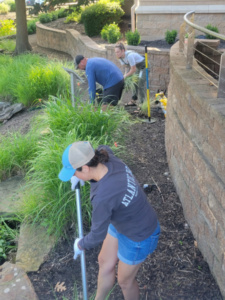 Native plants offer many benefits to your yard, including:
Native plants offer many benefits to your yard, including:
- Less water usage & maintenance
- Habitat for wildlife
- Soil health and erosion control
Revisit our last blog entitled “Water-Wise Landscaping” for a deeper dive into how to incorporate native plants into your landscaping and save money on your water bill. Schedule a visit with us to tour the garden and learn how your drinking water is cleaned and made safe for your community.

